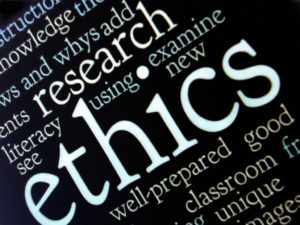Ethics in EU funded projects
Ethics in EU funded projects
Ethics is really an outstanding, crosscutting element in the EU proposals and funded projects. Its relevance increased during the 7th Framework Programme and HORIZON 2020 programming periods, and it is widely confirmed in the rules pertaining HORIZON EUROPE. All the proposals submitted under HORIZON EUROPE and under a number of other EU funded programmes undergo both a technical/scientific evaluation and an Ethics check, and to overcome brilliantly both is fundamental to be funded.
The first step to address Ethics issues in a proposal is to fill in the self-assessment table. If the proposal raises one or more of the issues listed in that table, it is also mandatory to complete the ethics self-assessment. This must include a description of the issues, how to deal with them in order to ensure ethics compliance and any relevant documents (such as authorisation or permissions that are already available with their expiry date).
The ethics self-assessment will become part of the Grant Agreement, and may thus give rise to binding obligations that may later on be checked through ethics checks, reviews or audits.
Ethics issues arise in many areas. For Horizon Europe projects, apart from the obvious example, the medical field, research protocols in social sciences, ethnography, psychology, environmental studies, security research, etc. may involve the voluntary participation of research subjects and the collection of data that might be considered as personal. For Digital Europe and EDF, the collection of personal data and the deployment and application of AI in any form are the obvious candidates. However, issues may arise in other fields as well.
 The members of our staff have a relevant background in Ethics, both by a legal and administrative viewpoint, and some of them are also included in the EU Commission Rooster of Independent External Ethics Experts. As such, they are involved in the Ethics check and assessment of proposal submitted for funding and of approved projects under different EU programmes and grant schemes, since the 7th Framework Programme financial period. Some of the programmes for which the Ethics checks and assessments have been carried out includes the 7th Framework Programme, Horizon 2020, the European Research Council programme, the MSCA, and the calls regarding the actual financial period.
The members of our staff have a relevant background in Ethics, both by a legal and administrative viewpoint, and some of them are also included in the EU Commission Rooster of Independent External Ethics Experts. As such, they are involved in the Ethics check and assessment of proposal submitted for funding and of approved projects under different EU programmes and grant schemes, since the 7th Framework Programme financial period. Some of the programmes for which the Ethics checks and assessments have been carried out includes the 7th Framework Programme, Horizon 2020, the European Research Council programme, the MSCA, and the calls regarding the actual financial period.
This relevant experience in the field, together with a robust and reliable professional background and expertise, are the basis of our research, training and consulting activities in the field of Ethics in EU funded projects. In particular, the EuroCrime project teams have been in charge for Ethics issues in the EU funded projects MARGIN and PROTASIS, and are actually noteworthy members of the internal Ethics Boards of the RE-TREAT and ENCLAVE projects. For the last two projects, EuroCrime has been the partner in charge of drafting the internal Ethics guidelines, supporting all the projects’ activities. For details regarding the projects, please visit the EuroShield/EU Funded Projects section in our website here.
Our experts provide support, training and consultancy to public and private subjects and institutions about all Ethics issues involved in the EU project planning and managing process. In particular, our experts have relevant experience in addressing:
- Data Protection and GDPR issues, with a special focus on legal aspects, Research with Humans, sensitive and health related data, international transfer of data, the involvement of vulnerable groups/people in the project activities, and use of personal data for research purposes;
- Ethics of Artificial Intelligence and of Autonomous and Intelligent Systems, which are particularly relevant topics under the HORIZON EUROPE calls.
Our experts are available to:
- As EuroCrime, be partners in partnerships and Consortia, being the partner responsible of the Ethics management of the project, and providing support i.e. in filling the self-assessment Ethics table and the Ethics self-assessment for the proposal, leading the Ethics Work Package and Tasks, chairing, organising and coordinating the Ethics Board, providing day-by-day Ethics support to the partners, caring for the Ethics deliverables, and the implementation of the eventual Ethics requirements;
- Provide professional support and consultancy to external public and private institutions, businesses, NGOs, academia, partnerships and other interested actors in dealing with the project Ethics issues during the phase of the drafting and submission of the proposal;
- Provide professional support and consultancy to the abovementioned subjects regarding Ethics compliance during the entire project lifespan, i.e. providing support for the fulfilment of the Ethics Requirements or being members of the External Ethics Advisory Boards;
- Being Ethics Advisors for the project, since its very beginning (proposal phase);
- Provide training regarding Ethics in EU funded projects, including data protection and GDPR, Ethics of Artificial Intelligence and of Autonomous and Intelligent Systems, and Research Ethics.
In this page – Image credits: “Is there grey area here?” by Carol (vanhookc) is licensed under CC BY-NC-SA 2.0

